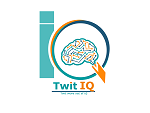Oracle and Google Cloud have recently announced a multicloud partnership that will allow you to combine Oracle Cloud Infrastructure (OCI) and Google Cloud technologies so that both technologies can increase their application migrations and modernization. This partnership will give you the chance to run workloads on both platforms — Google Cloud and the Oracle Cloud Infrastructure (OCI). It indicates that you can send data between two environments and you don’t need to pay any migration costs or cross-platform charges.
You are able to use Oracle databases and applications via the Oracle Database@Google Cloud multicloud service in the data centers of Google. In addition, you can access different functionalities, including analytics, Vertex AI, and Gemini foundation models, which are parts of the Google palette.
Oracle, Google Cloud Announce Multicloud Partnership
The cross-Cloud Interconnect feature of Google Cloud is going to be available for customers who are onboarding in eleven global areas. In the later phase of this year, Oracle Database@Google Cloud is expected to offer the utmost level of Oracle database and network performance, and it will be available with features as well as pricing parity with OCI.
Beneficial For Global Enterprises and Industries:
These two companies will jointly become go-to-market with Oracle Database@Google Cloud.
Enterprises across the globe will be capable of getting advantages from this. Also, it will give benefits to many industries like healthcare, financial services, retail, manufacturing, etc. Both companies are willing to fulfill the growing demand of the customers who want the flexibility of using multiple clouds. In order to meet the needs, they are connecting Google Cloud services with the most recent Oracle Database technology.
Easily Migrate Between Environments:
If you are one of the Google Cloud users, you will get Oracle services like E-Business Suite, PeopleSoft Enterprise, and Retail Merchandising. It is possible to house the distributed data stores at both OCI. You can move them easily between these two services if you want.
However, if you are already using the Google Cloud platform, you can buy services from Oracle via Google. As an Oracle customer, you can bring BYOL or Bring Your Own License service to Google Cloud. Also, you can have some discount programmes. You are capable of using existing solutions like Oracle Zero-Downtime Migration in order to move to the Cloud. You can get the partnership available only in eleven Google Cloud regions, such as Frankfurt, Madrid and London in Europe.
Benefits That Customers Can Get From the Multicloud Partnership:
As a customer, you can benefit from:
- A simplified buying experience through Google Cloud. It allows you to buy Oracle database services using the existing Google cloud commitments and helps to leverage the existing Oracle license benefits including BYOL as well as OSR.
- Flexible options that let you simplify the Oracle databases to Google Cloud. These assist in simplifying the compatibility with proven migration tools, like the Oracle Zero-Downtime Migration tool.
- It ensures security as well as latency of a unified operating environment for deploying the whole portfolio of Oracle database services. Names of these database services are Oracle Exadata Database Service, Oracle Autonomous Database Service, MySQL Heatwave, etc. Moreover, there are other Oracle database services like Oracle Database Zero Data Loss Autonomous Recovery Service, Oracle GoldenGate, and Oracle Data Safe.
- It is mainly designed to help you to accelerate your migration to the cloud by giving you the chance to modernize the IT environments while getting benefits of Google cloud infrastructure, tooling as well as IT services.
Oracle is going to start operating Oracle database services within Google Cloud data centers globally in Europe and North America. Later, Oracle Exadata Database Service, Oracle Autonomous Database Service, and Oracle Real Application Clusters (RAC) services are going to launch this year across Germany US East (Ashburn), US West, UK South (London), and Germany Central (Frankfurt).
Availability:
Oracle Cloud Infrastructure and Google Cross-Cloud Interconnect let you run workloads across OCI and Google Cloud regions without any cross-cloud data transfer cost. As a customer, you can start onboarding in 11 cross-cloud interconnect areas, which are as follows:
- Australia East (Sydney),
- Australia South East (Melbourne),
- Brazil East (São Paulo),
- Canada South East (Montreal),
- Germany Central (Frankfurt),
- Japan East (Tokyo),
- Singapore,
- Spain Central (Madrid),
- UK South (London), and
- US East (Ashburn), etc
It is expected that the partnership will expand to more regions over time. As a result, the private connection between these two cloud providers will have low latency and high throughput and can offer seamless interoperability.
These are the following things that it will permit customers to do:
- You can use the best combination of services of two big platforms to innovate, depending on the performance, features and pricing of them.
- With the help of a direct interconnection between OCI and Google cloud, you will be able to get low latency for quality multicloud network performance.
- You will be able to run several Oracle applications, like Oracle E-Business Suite, Oracle PeopleSoft Enterprise, Oracle Retail Merchandising, etc, on OCI with distributed data stored on these two platforms.
- You can use Google cloud as well as OCI technologies to build new cloud-native applications. For instance, you will be capable of using Google Cloud’s enterprise-grade Artificial Intelligence based technologies.
The Bottom Line:
The new multicloud capabilities can offer a fully integrated experience to deploy, manage, and use Oracle Database instances within Google Cloud. Moreover, it will permit moving data as well as deploying new cloud native applications across both clouds. As a result, organizations can drive breakthroughs in the cloud using their existing skills so that they can get the best of Oracle and Google Cloud capabilities.







